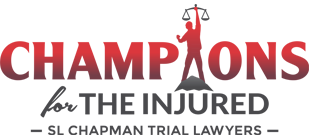Fault Disputes In Car Accident Cases
Posted on June 21, 2025Disagreements over who is at fault in a car accident are common and can directly impact how insurance claims or lawsuits unfold. It is a common scenario that different drivers involved in the same accident, have different versions of what happened to cause it. When this is the case, establishing liability becomes a primary part of the case. These disputes can affect everything from who pays for damages to whether an injury claim is successful.
Our friends at Culpepper Law Group discuss here how determining fault can become complicated and why it matters to work with the right legal guidance when pursuing a claim.
How Fault Is Determined After A Crash
After a car crash, insurance companies, law enforcement, and attorneys may all be involved in reviewing the facts. Fault is often determined by reviewing statements from drivers, police reports, photos of the scene, witness accounts, and traffic laws. If traffic cameras or cameras from nearby businesses caught any of the accident, video footage can help to support one person’s version more than other people involved in the collision.
However, fault isn’t always black and white. In some auto accidents, both drivers may share some responsibility. When that happens, different states use different rules—like comparative fault or contributory negligence—to determine how damages are awarded.
Why Accurate Statements Matter
The first things said after a crash can carry significant weight. Statements made to police, insurers, or even the other driver at the scene can later be used as evidence. That’s why it’s important to avoid guessing or making admissions of guilt before all facts are reviewed. Even a simple apology might be misinterpreted as accepting fault.
Drivers involved in an accident should stick to the facts and avoid discussing blame at the scene. Once everyone is safe and any injuries are addressed, the priority should be to document the incident as thoroughly as possible and let investigators do their part.
Evidence That Can Support A Claim
Proving fault often depends on solid documentation. Photos of vehicle damage, road conditions, traffic signs, and any visible injuries can help paint a clear picture of what happened. If witnesses were present, getting their contact information and brief statements can be helpful later on.
Medical records also play an important role, especially in personal injury claims. If treatment was delayed or inconsistent, it might raise questions about the cause or severity of the injuries. It is very important to seek timely medical care, even if you think your injuries are not that serious because having a record of your medical visits and needs helps create a link betweem\n the accident and any harm caused by it.
Legal Support Makes A Difference
Disputed fault cases can quickly become complicated, especially when injuries are involved. Working with a legal professional who has experience handling car crash claims can help clarify where responsibility lies. A car accident lawyer can investigate the incident, gather necessary documentation, and deal with insurance companies that may try to shift blame.
When fault is contested, insurance providers may use that to limit or deny compensation. That’s why it’s helpful to have someone on your side who can build a strong case based on facts and evidence.
Shared Fault Doesn’t Always End A Claim
In many states, even if you are partially at fault for an accident, you may still be eligible for compensation. How much you can recover depends on the degree of responsibility assigned to each party. For example, if you are found to be 20% at fault, any damages you recover may be reduced by that percentage.
Auto accidents can have long-lasting consequences, and fault disputes make things more stressful. If you’ve been injured and fault is being questioned, seeking advice from an experienced legal team is often a smart first step.


